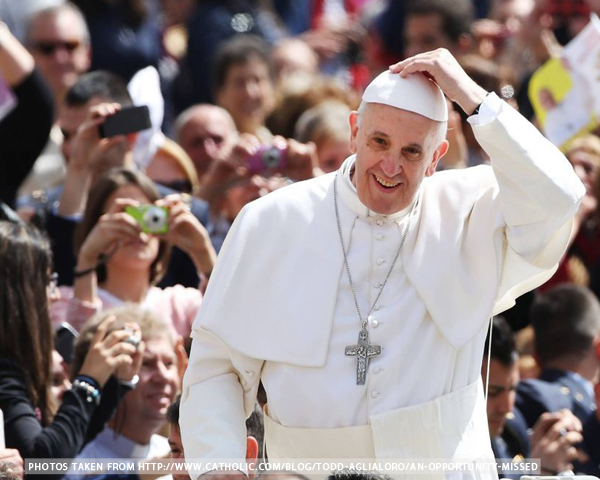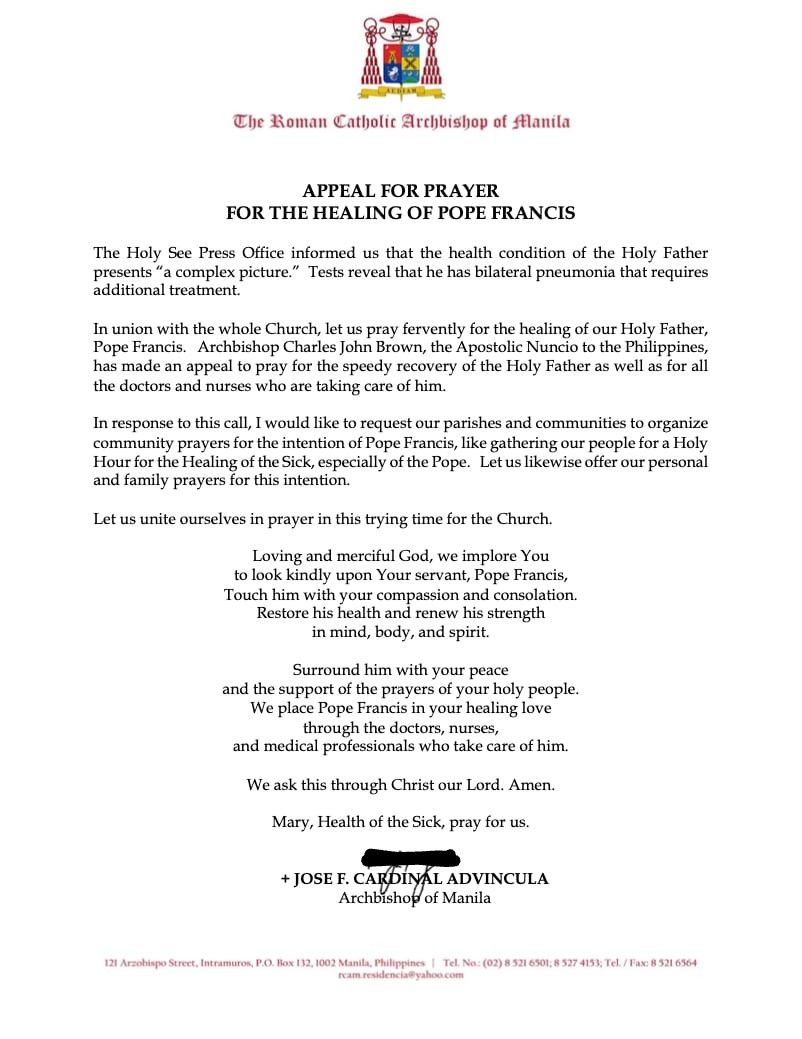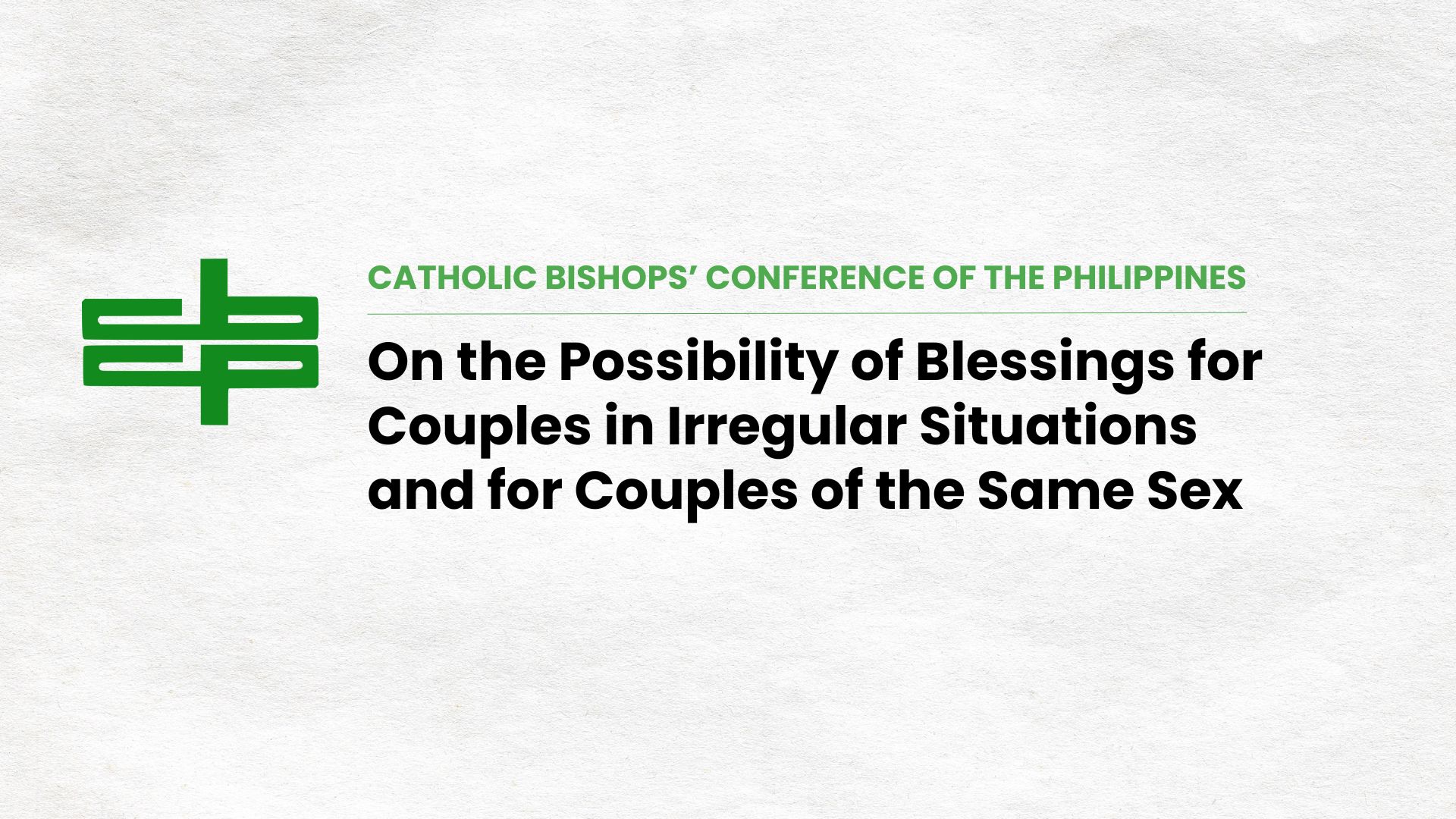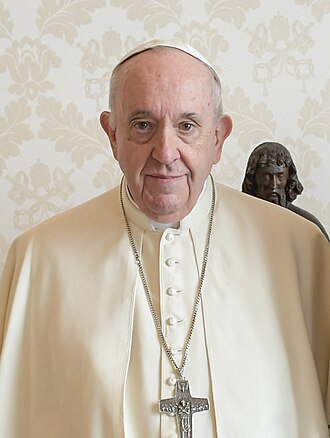
Commentary
Michael Cook
If you read the New York Times, you would be inclined to think so. From its pages, conservative Catholic columnist Ross Douthat has been waging a war on Pope Francis, accusing him of being a Machiavellian tyrant who is subverting the teachings of Saint John Paul II and Benedict XVI and trashing traditional Catholic morality.
To be fair to Douthat, his is not the only voice croaking in the fever-swamps of the internet. Some Catholic websites and bloggers are hinting that he should resign. One blogger talks venomously about the “Dictatorship of Mercy”. Another has recycled a clip from Downfall, the 2004 film about the last days of the Third Reich, featuring Francis as a paranoid Hitler vowing impotently to crush all resistance. (The Pope is like Hitler? The guy responsible for the deaths of 12 million people? Come on, guys, get a grip on yourselves!)
There was a time in the not-so-distant past when Popes were so revered that they dispensed blessings to the faithful from a throne carried on the shoulders of Papal chamberlains. But over the last couple of years, some Catholics have steeped themselves in such bitterness that they can say nothing good about this Pope. Every speech, every initiative, every new appointment, is scrutinized for evidence confirming his perfidy.
It is an extraordinary situation. Christians in the West, and especially the Catholic Church, are under intense pressure from aggressive secularism. The most powerful symbol of resistance is the Pope—and some of best divisions have revolted. Imagine the American troops at the Battle of the Bulge, surrounded and exhausted. Patton is coming to their rescue; he’s closer, even closer, almost there! And then Patton joins the Germans. It’s just weird.
After nearly four years, Francis’s enemies have piled up more complaints than the 95 Theses which Luther nailed to the door of All Saints Church in Wittenberg—from whose feet he washes on Holy Thursday to being squishy on abortion to saying “who am I to judge?” about a homosexual.
The central controversy revolves around a section in Amoris Laetitia, the document he published earlier this year on married life. In it Francis tackled the delicate question of how the Church should treat Catholics who are divorced and remarried. Can they receive Holy Communion? For Catholics this is a crucial issue. The Church does not recognize the dissolution of a valid marriage and intercourse in a new marriage is viewed as an act of adultery which needs to be confessed and absolved. Otherwise a person may not receive Holy Communion, which Catholics believe is the Body of Christ.
With divorce so common nowadays and an astonishing level of religious ignorance, the Church has a problem. There are Catholics who don’t even know that their Church forbids divorce. Others insist that their first marriage was valid, no matter what a priest may say. Others know nothing about the theology of Confession and Communion. If this is the case in relatively theologically literate countries like the United States, where the ratio of Catholics to priests is about 1500 to 1, it is far worse in countries like the Philippines, where it is 9500 to 1.
The stern standard response to such people has been that they can only receive Communion if they get an annulment, separate or demonstrate that they are living, in the quaint words of Catholic moralists, as brother and sister. Unsurprisingly, most people find these options too strict.
As a result, a number of Catholics receive no spiritual help from their Church. Their children remain unbaptized and they feel abandoned. The message Francis sends to them is: No, you are not excluded; let’s try to work this out without compromising the teachings of the Church. But this is difficult. If they are admitted to Communion willy-nilly, this would imply that the Church accepts divorce and no longer believes in the sacredness of Holy Communion.
What Francis suggests in Amoris Laetitia is that priests and bishops should lead people gently on an uphill climb towards the truth. His approach is not intended to be lax—elevating individual conscience above the moral law—but pastoral, guiding people to understand, appreciate and eventually love the moral law.
Admittedly, one could wish for greater clarity about how to implement this compassionate approach. The pronouncements of John Paul II and Benedict XVI were chiselled and razor sharp; Francis exhorts and is vague on the details. Writing in the 1940s, Pius XII wrote documents like Amoris Laetitia only for bishops; Francis addresses himself to the whole Church. It would be helpful if lay readers did not need supplementary commentaries from bishops, theologians and canon lawyers to construe his “apostolic exhortation” properly.
But in the end the success of Francis’s policy depends not only upon the good will of the strayed sheep but on the priest’s determination to hold the line on Catholic doctrine.
The Pope’s critics fear that he is leading the faithful astray by prattling on about fairy floss notions like mercy and forgiveness. But he is the head of the Catholic Church, gifted, as Catholics believe, with special inspiration from God to lead them through the shoals and reefs of history. If the needle of his compass swings to the mercy of God, perhaps that is exactly what the world needs. “Mercy” is not a get-out-of-jail-free card; it is a responsibility laid on the Pope’s shoulders. In fact, the Old Testament Mass reading on the day of his election was prophetic: “the one who is merciful will govern them”.
Ultimately, the pastoral strategy sketched out in Amoris Laetitia is a judgement call. But Catholics can be sure that Francis is not a crypto-Marxist liberation theologian, as some of the loopier voices in the swamp are croaking.
The media has been spotlighting simmering discontent amongst some Catholics. One of the most disappointing aspects of recent events is the silence on the part of senior clergy. Some have made off-hand remarks to the media but what is needed is clear, sturdy and charitable articles and interviews defending Pope Francis. The real scandal is not what the Pope has been teaching but that his theologians have been ducking for cover.
Tragically, this controversy is quenching the zeal of at least a certain sector of educated and pious Catholics for re-Christianising society. From the first days of his pontificate, Francis’s agenda was re-evangelisation of the spiritual deserts of the West. As he wrote in his brilliant and exhilarating encyclical, Evangelii Gaudium(The Joy of the Gospel) soon after he was elected in 2013:
I dream of a “missionary option”, that is, a missionary impulse capable of transforming everything, so that the Church’s customs, ways of doing things, times and schedules, language and structures can be suitably channeled for the evangelization of today’s world rather than for her self-preservation … As John Paul II once said to the Bishops of Oceania: “All renewal in the Church must have mission as its goal if it is not to fall prey to a kind of ecclesial introversion”.
Well, guess what? “Ecclesial introversion” is back in business, at least on the internet. Once again some of the best and brightest Catholics are becoming inward-looking, navel-gazing, censorious, hypercritical and judgemental. The Pope foresaw this in Evangelii Gaudium:
One of the more serious temptations which stifles boldness and zeal is a defeatism which turns us into querulous and disillusioned pessimists, “sourpusses”. Nobody can go off to battle unless he is fully convinced of victory beforehand.
With sourpuss atheists like Richard Dawkins predicting the “complete death of organized religion” in his lifetime, re-evangelisation in the Western world was always bound to be a tough gig. It’s a pity that the Pope’s critics are doing their best to spike their own guns. (Michael Cook is editor of MercatorNet)
Source: CBCP News











